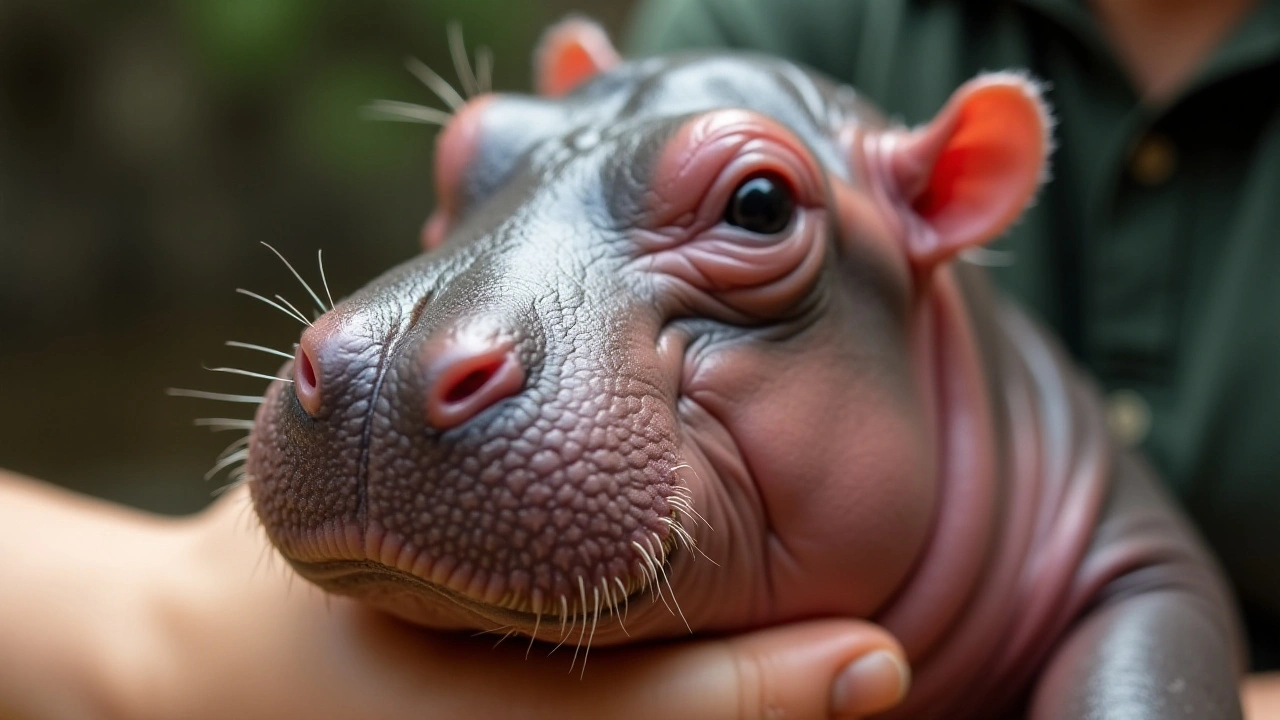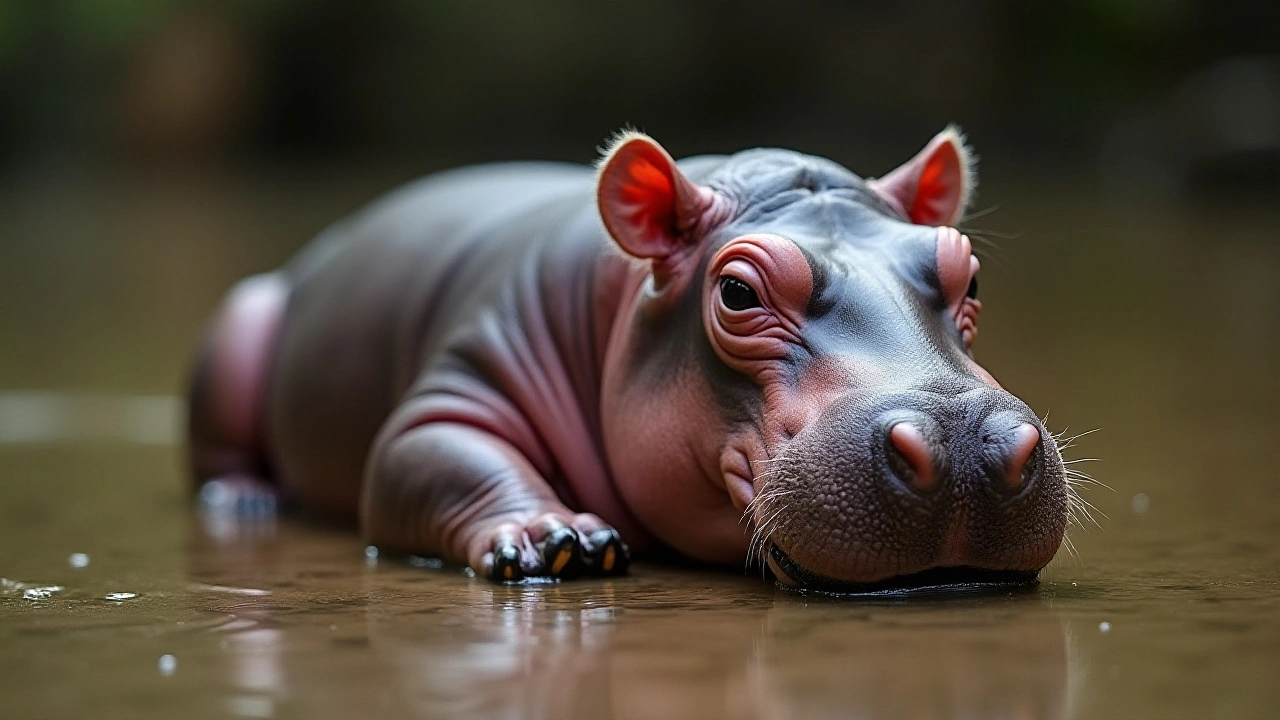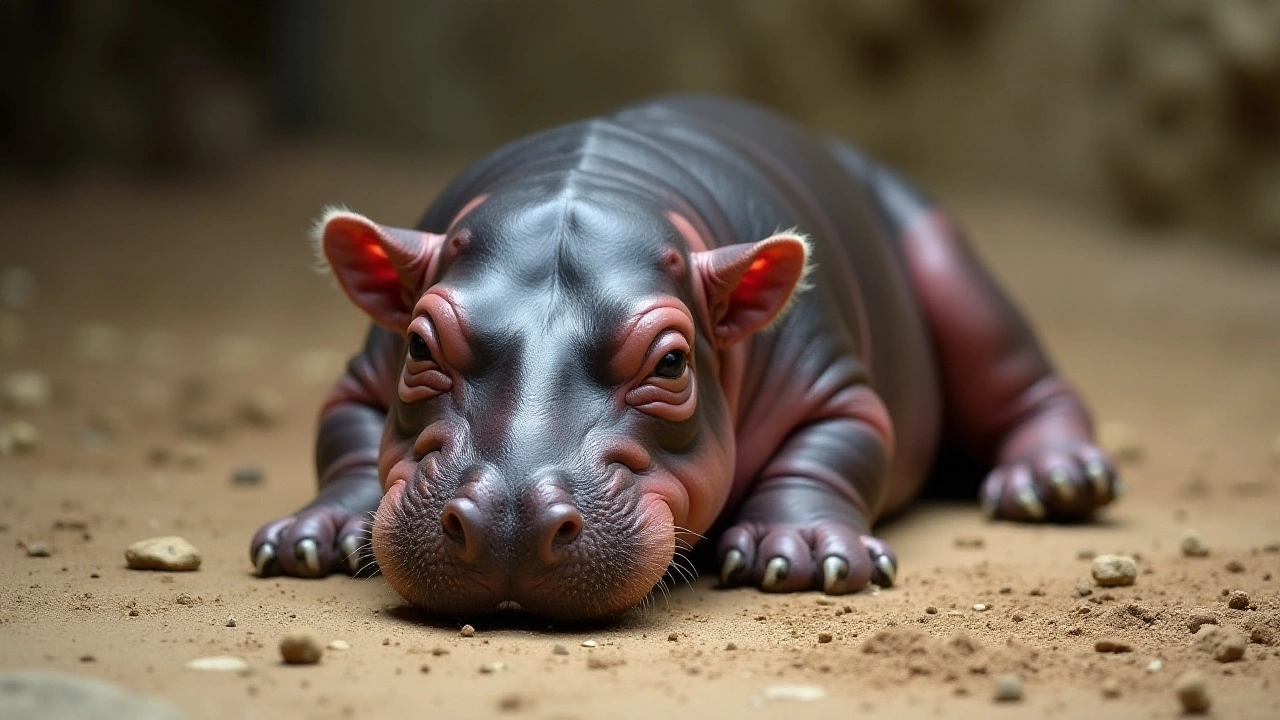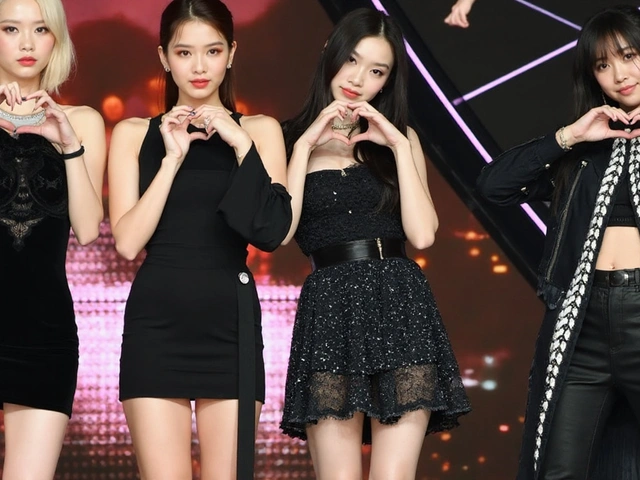The Rise of Moo Deng: A Tiny Hippo Making Big Waves
At Khao Kheow Open Zoo, located near Pattaya in Thailand, a small but mighty creature is creating a buzz that has doubled the zoo's visitor numbers. Moo Deng, a two-month-old female pygmy hippo, has stolen the spotlight and become an internet phenomenon, captivating the hearts of many with her adorable demeanor and playful antics. Since her birth on July 10, the zoo has experienced a significant surge in visitor numbers, turning what is typically a quiet period during the rainy season into a bustling tourist hotspot.
A Name Chosen by Thousands
The story of Moo Deng's rise to fame began with a unique approach to selecting her name. The zoo engaged the community through a Facebook poll, allowing over 20,000 users to participate in the naming process. The chosen name, Moo Deng, which translates to 'bouncy pig' in Thai, perfectly encapsulates the baby hippo's lively and spirited nature. This interactive naming campaign not only brought the local community together but also sparked widespread interest in Moo Deng's story.
Viral Sensation
Moo Deng’s infectious charm did not stop at the zoo's gates. Her playful behavior and endearing appearance have been captured in numerous videos that have gone viral on social media platforms, attracting millions of fans worldwide. From her curious explorations to her splashes in the water, every moment of Moo Deng's day seems to enchant and delight viewers. This online fame has translated into a tangible increase in visitor numbers, with weekdays drawing 3,000 to 4,000 visitors, and weekends seeing up to 20,000 people flocking to catch a glimpse of the tiny hippo. Such an unprecedented rise in attendance is notable, especially during the rainy season, which typically sees a drop in visitors. Moo Deng has proven to be the perfect antidote to the seasonal downturn.

Managing the Crowd
While Moo Deng's popularity has undeniably benefited the zoo, it has also brought with it certain challenges. Some visitors, eager to engage with the baby hippo, have behaved inappropriately. Incidents such as throwing shellfish into her enclosure and splashing water on her to wake her up have been reported. To address these issues, the zoo has installed CCTV cameras around the enclosures and has begun to warn visitors that legal action may be taken against those mistreating the animals. These measures are crucial for ensuring Moo Deng's wellbeing and maintaining a safe and respectful environment for all animals at the zoo.
Capitalizing on Fame
The zoo has wisely capitalized on Moo Deng's newfound fame by creating and selling various hippo-themed merchandise. Visitors can now purchase shirts, pants, and other memorabilia featuring the adorable pygmy hippo, further cementing her status as a beloved symbol of the zoo. Other brands have also joined the bandwagon, with a beauty retailer releasing a line of blushes inspired by Moo Deng’s cuteness. This cross-industry appeal underscores the special place Moo Deng holds not only within the zoo but also in popular culture at large.
International Recognition
Moo Deng’s charm has crossed borders, making her an international television star. A Japanese broadcaster featured the baby hippo in a special segment, introducing her to an entirely new audience. The Royal Thai Embassy has also acknowledged Moo Deng on social media, highlighting her contribution to raising awareness about the importance of wildlife conservation. Such international exposure not only boosts the zoo's profile but also brings attention to the plight of endangered animals around the world.

The Mission of Conservation
Pygmy hippos, native to West Africa, are classified as endangered, with fewer than 3,000 individuals remaining in the wild. The attention surrounding Moo Deng provides a powerful platform for the zoo to educate visitors about the critical need to protect these vulnerable creatures. The zoo's director, Narongwit Chodchoy, emphasized the institution's commitment to conservation efforts. By raising awareness and resources, the zoo aims to contribute meaningfully to the global endeavor of saving endangered species from extinction.
Conclusion: A Beacon of Hope
Moo Deng, the tiny pygmy hippo, has become a beacon of hope and joy, drawing attention to both herself and the broader issue of wildlife conservation. Her story serves as a testament to the impact that one small animal can have on public awareness and action. As thousands of visitors continue to flood the Khao Kheow Open Zoo, they leave with not just memories of an adorable baby hippo but also a renewed understanding of the importance of protecting endangered species. Moo Deng's legacy is one of hope, connection, and the enduring power of nature's charm.






Moo Deng is pure joy 🐷💖
This is all just a distraction from the real issue - the zoo is probably using her to hide how bad their other animal care is. I’ve seen videos of the keepers ignoring the monkeys. They’re just exploiting this baby for money and clout. #WakeUp
I CRIED WHEN I SAW HER FIRST VIDEO. I MEAN LIKE FULL ON SOBBING. THIS LITTLE BEAST IS A MIRACLE. THE WORLD NEEDS MORE MOO DENG. IF YOU’RE NOT FEELING SOMETHING RIGHT NOW, YOU MIGHT BE DEAD INSIDE. PLEASE GO SEE HER. SHE’LL FIX YOU.
Pygmy hippos are actually not even that rare in captivity, people act like she’s the last one on earth. Also the name Moo Deng sounds like something a toddler would come up with after eating too much candy. And why are people buying blushes? Is this a beauty pageant now?
It’s fascinating how a single animal can bridge so many gaps - tourism, conservation, public awareness. The naming poll was genius. It made people feel like they were part of something bigger. I wonder if other zoos will copy this model. Maybe we could crowdsource names for endangered species globally?
Congratulations. You’ve turned a critically endangered species into a merchandising opportunity. Truly inspiring. 🎉
Of course the tourists are throwing shellfish. People think animals are toys. This is why we can’t have nice things.
I’ve been to this zoo three times already. I don’t care if she’s cute - someone needs to tell those parents to stop screaming at her like she’s a TikTok dance challenge. I saw a kid try to poke her with a stick. I nearly cried. This isn’t a theme park. This is a sanctuary.
Moo Deng is not a symbol of hope. She’s a commodity. The real tragedy isn’t her enclosure - it’s that we’ve reduced the sacredness of life to viral content. We don’t love her. We love the algorithm that made her.
This is the kind of story that reminds me why I still believe in good things. We need more of this. Not more outrage. Not more cynicism. More wonder. More quiet awe. Go see Moo Deng. Bring your kids. Let them feel something real.
Wait - so a baby hippo is more popular than the Thai royal family? That’s the real scandal here. Someone’s been lying to us about monarchy relevance.
I just bought a Moo Deng hoodie and a blush. I’m crying again. This little pig is changing the world one selfie at a time. I’m not even sorry. 🐷✨
It’s... really beautiful, isn’t it? The way something so small can bring so many people together. I’ve never been to Thailand, but now I want to go. Just to see her. Just to sit quietly and watch her sleep. Maybe... maybe that’s enough.
Let’s be real - this is all staged. The zoo staff trained her to splash on cue. The viral videos? Edited. The name poll? Fake. They’ve been doing this since 2018 with baby elephants. It’s PR. It’s manipulation. And you’re all falling for it like sheep.
Actually, pygmy hippos are nocturnal and very shy in the wild. The fact that she’s so active during the day means the zoo has created a very safe, low-stress environment. That’s a win for animal welfare. Also - the conservation funding from her fame is likely going toward breeding programs in Liberia and Sierra Leone. That’s huge.
I hope they give her space. I hope the cameras aren’t too loud. I hope someone’s watching her sleep at night. She deserves peace.
This is why we need more zoos like this - ones that prioritize education over entertainment. Moo Deng isn’t just cute - she’s a teacher. And we’re all learning. Keep going, Khao Kheow.
They say she’s happy. But how do we know? Animals don’t smile for cameras. They just survive. And now she’s a product. And we’re the consumers. And we’re proud of ourselves.
The institutionalization of emotional response through commercialized zoological spectacle represents a paradigmatic shift in human-animal relational dynamics. One may argue that such phenomena catalyze conservation awareness; however, the commodification of biological vulnerability remains ethically precarious.